Shuvendu Lahiri
Towards Neural Synthesis for SMT-Assisted Proof-Oriented Programming
May 03, 2024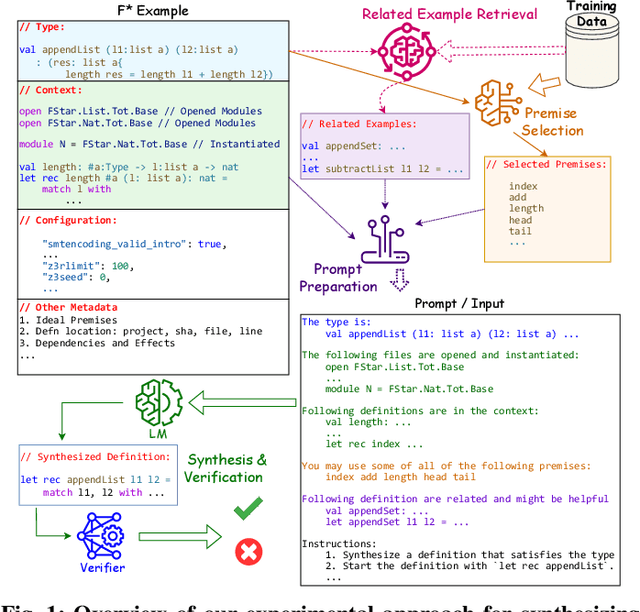
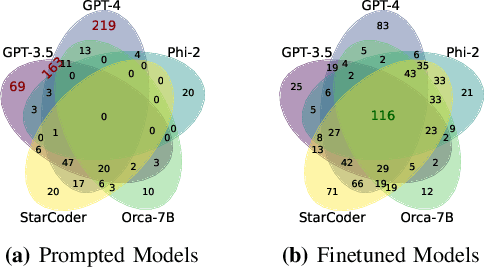

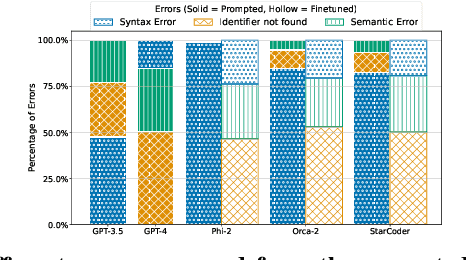
Abstract:Proof-oriented programs mix computational content with proofs of program correctness. However, the human effort involved in programming and proving is still substantial, despite the use of Satisfiability Modulo Theories (SMT) solvers to automate proofs in languages such as F*. Seeking to spur research on using AI to automate the construction of proof-oriented programs, we curate a dataset of 600K lines of open-source F* programs and proofs, including software used in production systems ranging from Windows and Linux, to Python and Firefox. Our dataset includes around 32K top-level F* definitions, each representing a type-directed program and proof synthesis problem -- producing a definition given a formal specification expressed as an F* type. We provide a program-fragment checker that queries F* to check the correctness of candidate solutions. We believe this is the largest corpus of SMT-assisted program proofs coupled with a reproducible program-fragment checker. Grounded in this dataset, we investigate the use of AI to synthesize programs and their proofs in F*, with promising results. Our main finding in that the performance of fine-tuned smaller language models (such as Phi-2 or StarCoder) compare favorably with large language models (such as GPT-4), at a much lower computational cost. We also identify various type-based retrieval augmentation techniques and find that they boost performance significantly. With detailed error analysis and case studies, we identify potential strengths and weaknesses of models and techniques and suggest directions for future improvements.
MergeBERT: Program Merge Conflict Resolution via Neural Transformers
Sep 08, 2021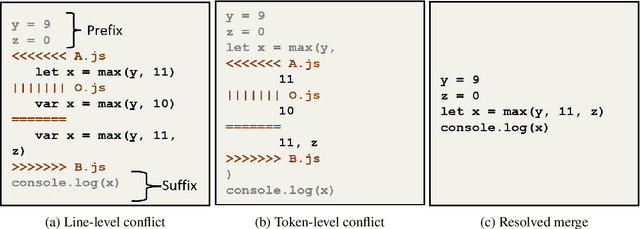
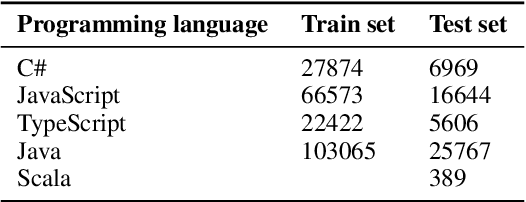


Abstract:Collaborative software development is an integral part of the modern software development life cycle, essential to the success of large-scale software projects. When multiple developers make concurrent changes around the same lines of code, a merge conflict may occur. Such conflicts stall pull requests and continuous integration pipelines for hours to several days, seriously hurting developer productivity. In this paper, we introduce MergeBERT, a novel neural program merge framework based on the token-level three-way differencing and a transformer encoder model. Exploiting restricted nature of merge conflict resolutions, we reformulate the task of generating the resolution sequence as a classification task over a set of primitive merge patterns extracted from real-world merge commit data. Our model achieves 64--69% precision of merge resolution synthesis, yielding nearly a 2x performance improvement over existing structured and neural program merge tools. Finally, we demonstrate versatility of our model, which is able to perform program merge in a multilingual setting with Java, JavaScript, TypeScript, and C# programming languages, generalizing zero-shot to unseen languages.
 Add to Chrome
Add to Chrome Add to Firefox
Add to Firefox Add to Edge
Add to Edge